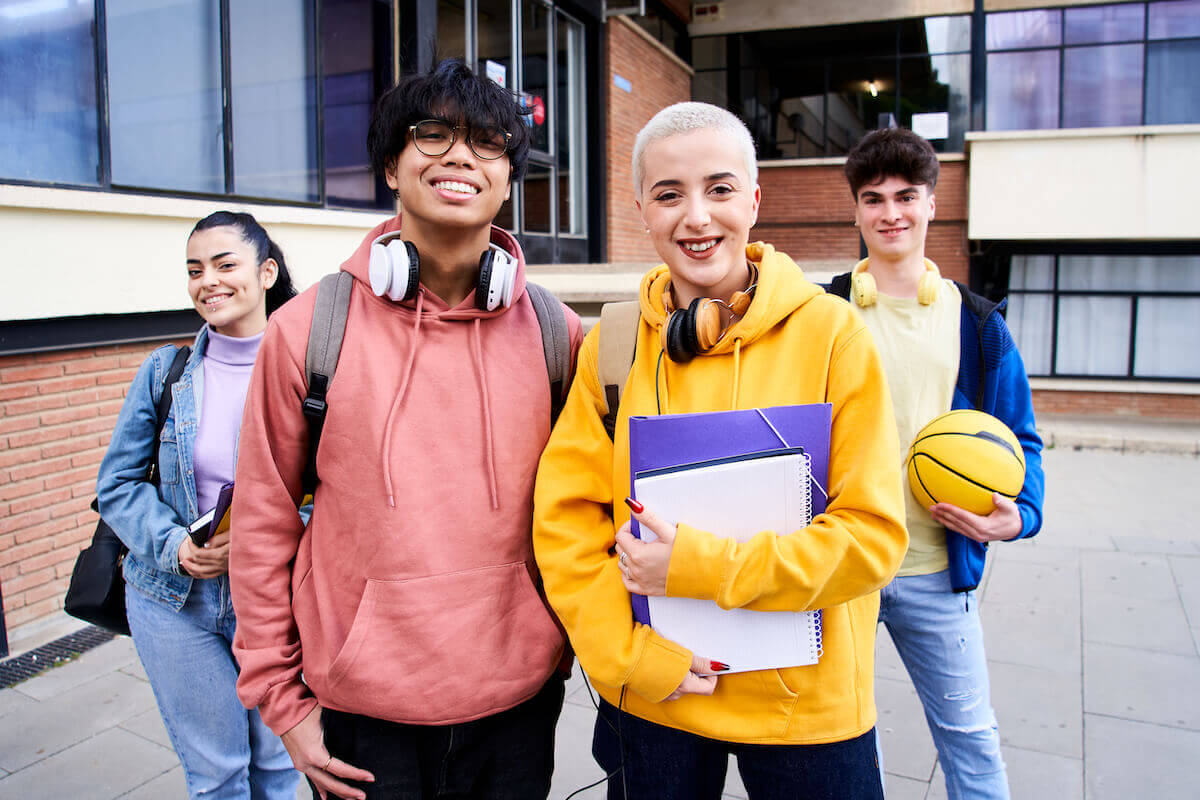Command Education was founded with the mission to empower each individual to find their passion while developing valuable life skills for college and beyond. Our students build upon their passions, creating dynamic applicant profiles that stand out to their dream schools. But how do we support students who don’t have the slightest clue what their interests may be? What about students who have no sense of direction, least of all with regards to their collegiate careers? And what if a student isn’t interested in applying to the Ivy League?
Command Education Senior Mentors work with students who have a diverse range of skill sets and backgrounds. Some students begin working with our team with near-perfect grades and the ambition to attend one of the nation’s top schools, while others seek to level up their options or stand out to reputable state schools. Some come to Command Education simply wanting to find direction, motivation, and develop their soft-skills. We know that a top college or university isn’t right for every student—our goal is to help students find the school at which they will flourish and chart their path for success in the future. Our Senior Mentors meet students wherever they are in their personal and academic journeys and coach them to find their passions.
Parent Tip: What matters most is not necessarily where your student enrolls, but how they use their four years on campus. In order to build an academic and professional network, establish themselves in their field, and make the most of their college experience, it is imperative that they develop the social, emotional, and executive functioning skills necessary for success.
For students who find themselves unmotivated, struggling to keep up in school, or lacking a sense of direction for their future, Senior Mentors primarily focus on:
1. Confidence Building
Our Senior Mentors know that the first step to coaching a student to reach their potential is instilling a sense of self-confidence and capability. Many students lose motivation and drive simply because they fall into the traps of comparing themselves to others, feeling that they have let down those they want to impress, or letting one mistake or bad grade define their abilities. Helping students to regain their trust in their unique skills and talents is the first step toward motivating them to succeed.
2. Soft Skill Development
Developing soft skills such as time management, organization, communication, problem-solving, and flexible thinking is another crucial component of our work with students who struggle academically or with executive functioning. Students who struggle with procrastination or disorganization can quickly fall behind, a problem that snowballs as time goes on. Instilling these skills helps students not only catch up in their high school careers but prepares them for the increased rigor of college coursework.
3. Academic Support
For many students, academic issues arise from a lack of support. Our Senior Mentors help students better understand their learning styles in order to tailor their study habits and day-to-day academic work around what works best for them. Additionally, we guide students in identifying the proper channels and resources (whether in the classroom through the help of a teacher or outside of it through tutors) to provide them with the support they may need to boost their academic performance.
4. Leadership Coaching
Empowering students to grow into leaders in their communities is at the core of Command Education’s mentorship model. Once students have established the foundational skills they need to thrive, Senior Mentors work with them to hone their interests and passions through extracurricular activities. As students begin to identify the activities and involvements that are most exciting to them, they work with their Senior Mentors to identify leadership opportunities and avenues to contribute creatively within their communities. Whether running for president of a club, bringing new ideas to a group (along with a plan to execute them), or starting their own club or organization tailored to their interests, stepping up in their communities provides valuable opportunities for growth while enriching a student’s applicant profile.
5. Goal Setting
Finally, as students become more rooted in their skills and passions, they are able to look toward the future and consider their goals for college and beyond. Senior Mentors help students evaluate their college options on the basis of their academic and career interests, test scores, and grades, and identify options that fit their personalities and passions. Goal setting looks different for every student—some students may decide they want to take a gap year, others set their sights on a top school, while others identify a program that interests them at their local state school. What matters is that students are rooted in their core passion and equipped with the skills they need to achieve their goals.
Case Study: James
James began working with Command Education during the spring of his freshman year. The youngest of three siblings, James had always struggled to keep up with his older brother and sister, both of whom had enrolled in top-tier schools after graduation. At the start of freshman year, James enrolled in a highly ranked New York City public school, but the pressure he felt to rise to the talents of both his peers and his family members resulted in a loss of confidence, and he quickly fell behind.
When James began working with Senior Mentor Josiah, his first semester GPA was 2.5, and he had retreated from activities that used to excite him. Josiah spent their first few sessions seeking to truly get to know James—they discussed his interests in video games and playing basketball on the weekends. Josiah continually encouraged James to begin participating in activities both in and outside of the classroom once again, and James began to open up more. He increasingly gained the courage to identify where his lack of motivation and academic struggles originated.
Identifying procrastination and self-doubt as two major contributing factors, Josiah worked with James at the start of the fall semester to create a detailed planner. Together, they broke down projects and assignments into manageable chunks so that they no longer seemed as intimidating. They also practiced using the Pomodoro method, which allowed James frequent breaks to stretch his legs and return to a given project with better focus.
James brought these skills and newfound self-confidence into the classroom, where he started sitting in the front of the room, actively listening and taking notes, and sought additional help as needed. Over the course of his sophomore year, he slowly became a leader in the classroom.
By the start of his junior year, James had buoyed his grades, gotten involved in a few clubs at his high school, and joined a basketball rec league that practiced on the weekends. He began telling Josiah about the need for better basketball facilities in his area so that more kids could enjoy the camaraderie and physical benefits of playing ball, and he realized that his weekend hobby could become an opportunity to contribute to his community. He motivated his rec team to start fixing up outdoor courts nearby—from raking leaves to repainting foul lines to repairing broken nets. As kids and families began showing up in greater numbers, James decided to take his initiative to the next level by starting a shoe drive in which students and families at his school could donate their lightly worn sneakers to those who could not afford a new pair.
The confidence James built through his volunteer work spilled into his academic work, and he strove to make the most of his senior year, bringing his GPA to a 3.5 and earning a 1280 on the SAT. Last spring, James was accepted to Boston College, where he is studying Applied Psychology and Human Development.
*Note: Names and identifying information has been changed to protect student privacy.












